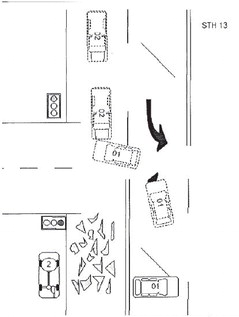Common medications can increase the risk of falling


Because September is Falls Prevention Awareness Month, it’s a time to spotlight one of the leading causes of injury among older adults. According to the Centers for Disease Control and Prevention (CDC), falls send about three million people to the emergency room every year, and certain common medications can play a surprising role in increasing that risk.
Medications often affect the body in ways people don’t expect.
“A lot of medications have side effects,” said Kenneth Yuk, pharmacy resident. “Very common ones, such as things you would take for allergies, can make you very sedated or sleepy, so that can increase your risk of falling. Other people on pain medications for chronic pain, or on certain heart and blood pressure medications, may also experience dizziness or drowsiness.”
Older adults are particularly vulnerable. “Pretty much anyone taking these medications is at risk for increased falls,” said Yuk. “However, we are more worried about those of older age, because while if you’re younger, you can fall and recover pretty quickly, as you grow older, these falls are more detrimental.”
Over-the-counter products can also pose hidden risks. Some cold and allergy medications are used as an example.
“Some of those allergy meds – while not everyone is affected at the same level – can make certain people drowsy,” said Yuk. “Others might not be very clear in the packaging or have unfamiliar ingredients that contain some of these medications that contribute to drowsiness, so you could still be at risk.”
People should regularly review their medications with a health professional. If there are questions about prescriptions or concerns about fall risk, schedule an appointment with a doctor or pharmacist.



